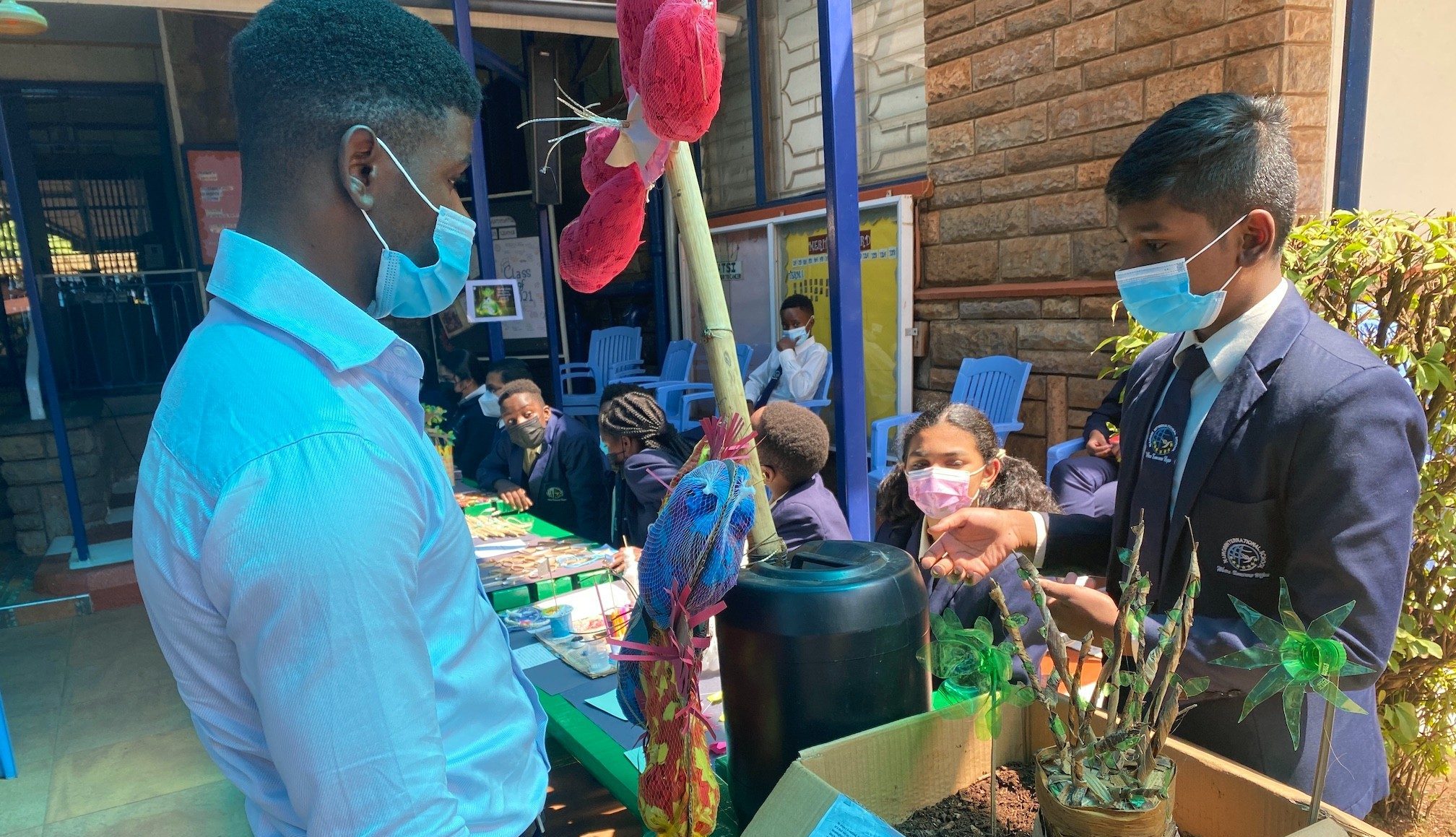The question “What do you want to be when you grow up?” is one that children world over are consistently asked. In the recent past, debates have been held around it, digging deeper into what it implies and how it can be reframed to shift the focus away from specific jobs and more towards the kind of people they want to be. One school of thought even suggests that we instead ask children what problems they would like to solve. And isn’t that a changemaker’s dream!
One such changemaker is Danson Imbwaga, a vibrant environmental enthusiast and researcher with a great passion for involving youth and children in sustainability and green economy matters. As a Programmes Assistant at Kenya Organization for Environmental Education (KOEE), he runs the Eco Schools programme which seeks to achieve educational goals as well as sustainable development using schools as entry points to communities.
Danson recognizes that young people, especially students, are often not included on the decision-making table yet they will continue to be grossly affected by the social and environmental challenges that we face. That said it would be flawed to provide a platform and not empower them.
“Our programs ensure that they are adequately prepared to bring creativity, new thinking and innovation to the table. If we want to engender lifelong positive change in learners, then we must opt for a model that addresses all the fundamental dimensions of learning which include the cognitive aspect, emotional wellbeing and social interaction and integration,” says Danson
A fundamental value in the Eco-Schools programme is the promotion of Education for Sustainable Development (ESD). Education for Sustainable Development (ESD) empowers learners of all ages with the knowledge, skills, values and attitudes to address the interconnected global challenges we face, including climate change, environmental degradation, loss of biodiversity, poverty and inequality.
Danson strongly feels that introducing the Sustainable Development Goals to students opens up opportunities to solve social problems and contribute towards meeting the global goals.
“The goals are not included in our education system, yet they hold the key to resolving most if not all of our challenges,” he says.
KOEE was nominated to take part in our WWF Panda Labs Greenhouse Sessions 1.0 Acceleration course where Danson and five of his colleagues did a Design Thinking course.
“The sessions were practical and eye-opening, giving us guidance on how to package our ideas through an engaging mode of learning,” says Danson.
He adds that all the modules were taught in an easily understood manner and motivated him and his colleagues to find solutions and come up with new ideas.
He highlights the Global Classroom SDGs campaign, which was successfully implemented post the acceleration course, as a great ground where he tested the knowledge he had acquired.
“We used the newly gained skills to prototype and implement this project involving two countries and nine schools, in critical conversations on the SDGs at a time when the world was facing major challenges including lock downs due to the pandemic.
Through this initiative, the KOEE team, in partnership with An Taisce from Ireland, brought together approximately 1000 students from schools in Kenya and Ireland to discuss solutions they could implement in response to SDGs 5, 12, 13, 14 and 15. The initiative provided room to design and implement a multi-faceted project which ran with minimal budgets for about seven months.
The project was a great success, positively engaging students and delighting parents during a time of great uncertainty. It also provided an opportunity to make new connections with stakeholders including the Irish embassy in Kenya. Danson and his colleagues are now looking forward to expanding the initiative’s scope to include three more countries during the second phase.
Through this and other programmes at KOEE, Danson is motivated by the opportunity to contribute to a generation of sustainability-conscious people who will carry forth positive behaviors, teaching them to future generations. As for the hundreds of children reached through KOEE’s work, we hope that their answer when asked what they want to be when they grow up, is going to be changemakers.



